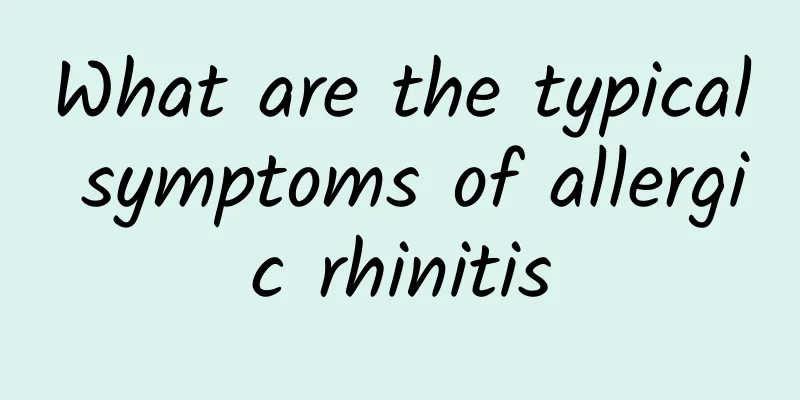Could dizziness, hearing loss, tinnitus, and stuffy ears be Meniere's disease?

|
Author: Huang Weining, Chief Physician, Beijing Hospital Reviewer: Liu Zhi, Chief Physician, Xuanwu Hospital, Capital Medical University Meniere's disease, also known as Meniere's syndrome, is an inner ear disease of unknown cause, with endolymphatic hydrops as its pathological feature. The main symptoms are dizziness, hearing loss, tinnitus, and ear stuffiness. Figure 1 Original copyright image, no permission to reprint Some theories and hypotheses believe that it may be caused by an organ in the inner ear, such as obstruction of the endolymphatic sac and endolymphatic duct; malformation of the vestibular aqueduct; or some immune factors, genetic factors, vascular factors, or viral infection. About 20% of Meniere's disease is related to genetics. It is an autosomal dominant inheritance and is familial. The onset age is often relatively early and the symptoms are relatively typical or severe, but not all patients can find evidence of inheritance. Generally speaking, Meniere's disease is more common in middle-aged people. These people have a common characteristic, which is that they are under great pressure, which may be caused by fatigue, worry, and irregular lifestyle. 1. How to diagnose Meniere's disease? Meniere's disease is diagnosed mainly based on symptoms. First of all, vertigo. One episode of vertigo cannot be diagnosed as Meniere's disease. The definition is that there are more than two episodes of vertigo, and each episode lasts from 20 minutes to 12 hours. There may be no change in body position. Vertigo can occur when sitting well or sleeping. The second is hearing loss, which is fluctuating in the early stages and becomes more and more obvious in the later stages. Pure tone audiometry can be used to check for hearing loss. Generally speaking, tinnitus or ear fullness and dizziness occur together. As time goes by, some tinnitus becomes persistent, and ear blockage and fullness also become persistent. Some patients come to the doctor with ear fullness as the main complaint. Figure 2 Original copyright image, no permission to reprint Recurrent episodes of vertigo, more than twice, each lasting 20 minutes to 12 hours, and vertigo caused by other diseases is excluded; fluctuating hearing loss occurs, and there must be evidence to prove that it is fluctuating hearing loss; tinnitus and a feeling of fullness and stuffiness in the ears occur. If these conditions are met, it can be diagnosed as Meniere's disease. 2. How to treat Meniere's disease? In the early stages, drug treatment is the main approach. Most symptoms can be relieved through drug treatment, and vertigo can be well controlled. Currently, drugs for the treatment of Meniere's disease are divided into several major categories: sedatives, such as histamine, anticholinergic, and antidopaminergic drugs, which are often used in the acute phase; diuretics, which are dehydration drugs; betahistine drugs; and hormone drugs. These types of drugs are commonly used now. Vertigo occurs one after another and each time does not last long. During the intervals when there is no problem, you do not need to take medicine at all. You can take medicine only when symptoms occur. Because the cause is unclear now, there are not many targeted methods. If the vertigo is very stubborn, recurring, and severe, and conservative treatment or drug treatment has not been effective for six months, surgical treatment can be used. There are several major types of surgery: one is endolymphatic sac surgery, the second is semicircular canal tamponade, and the third is to cut off the entire vestibular nerve or destroy the receptors, which is called labyrinthectomy. Vestibular function is extremely important for the elderly, so surgery is very cautious. It is best to choose less destructive surgery with fewer complications, such as endolymphatic sac surgery and semicircular canal tamponade, which have more options. 3. Can Meniere's disease be completely cured through medication or surgery? Basically, it is impossible. So far, this disease is considered a lifelong disease because the cause is unclear. The essence is endolymphatic hydrops. However, the symptoms can be controlled, such as vertigo, and hearing is sometimes difficult to control. After drug treatment and surgical treatment, vertigo may recur again. How to judge the treatment effect? First, judge based on the improvement of vertigo and the recovery of hearing. For example, for vertigo, look at the number of attacks. Generally, an evaluation is given two years after treatment. If there are no attacks after treatment, it is considered cured; 40% still have attacks, which is called basic control. For example, for hearing, the hearing condition before treatment, what was the worst time, and compare the second half of the year after two years of treatment with the worst hearing. If the hearing has increased by 30 decibels, it means the effect is very good. |
<<: Do you know about Budd-Chiari syndrome? How should it be treated?
Recommend
What should I do if my menstrual period becomes less and less?
As a woman, it is not normal if your menstrual pe...
Headache during menstruation
During menstruation, women’s bodies will become w...
The limbs are weak but recover quickly, what went wrong?
Author: Liu Yumei, Chief Physician, Xuanwu Hospit...
Breastfeeding breast pain
Breastfeeding is a way of feeding a baby with bre...
How do women maintain their uterus?
The uterus is the most important physiological or...
What should I do if I bleed after 50 days of ectopic pregnancy?
Sometimes, women are very happy thinking that the...
Can pregnant women eat sow meat?
We rarely eat sow meat in our daily life, mainly ...
Will cataracts cause itching and pain? What will happen when cataracts develop?
Cataract is an eye disease and the leading cause ...
My wife's bones hurt when she climaxes
There are many benefits of family harmony. Harmon...
A man was scared when 2 liters of oil were drawn from his blood during a physical examination
Recently, Mr. Wang from Hankou had a very profoun...
Can you get pregnant if you have sex after your period?
Some women can't wait to have sex with their ...
Can I eat pickles during early pregnancy?
During pregnancy, the taste is prone to change. S...
How long can I breastfeed after taking ceftriaxone during lactation?
Breastfeeding mothers should not take medicines e...
Are small bumps on the vagina contagious?
Some common diseases among women are caused by th...
Treatment for low estrogen
Free clinics for women’s physical health should b...









